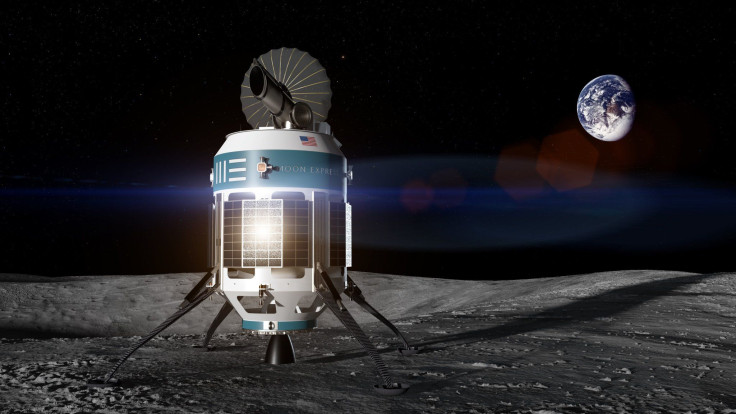Moon Express Plans Robot Outpost For Mining Minerals On Lunar South Pole

The first colony on the moon might be full of robots instead of people, if a plan from the private space company Moon Express works out.
It is aiming to build an unmanned lunar outpost, supported by a fleet of spacecraft explorers that would launch from low Earth orbit and deliver supplies to and land on the moon, according to The Verge. The MX explorer fleet would rely on the Electron rocket that the space company Rocket Lab has designed to launch out of New Zealand in order to get into space before heading to the moon.
Read: New Zealand Plans to Launch Electron Rocket Every Week
The lunar station, at the moon’s south pole, could come as soon as 2020. The plan is to have robots staying around the clock on the moon to mine it for resources like minerals and then sell them, The Verge explains. Those resources the robots would mine may also include water.
“Our mission is to redefine possible by returning to the moon and unlocking its mysteries and resources for the benefit of humanity,” the Florida-based Moon Express says on its website. “The Moon is Earth’s eighth continent; a new frontier for humanity with precious resources that can bring enormous benefits to life on Earth and our future in space. Expanding Earth’s economic and social sphere to the Moon is our first step in securing our future.”
The company, which was founded in 2010, has a goal listed on its website that in 2020 its “Expedition ‘Harvest Moon’ sets up permanent research outpost and returns first non-government lunar samples to Earth.”
Today we unveiled our exploration architecture & plans for a robotic outpost at the south pole of the Moon by 2020. https://t.co/7PlLkic6l1 pic.twitter.com/XjBWRvyqLj
“Like the Earth, the Moon has been enriched with vast resources through billions of years of asteroid bombardment,” the company explains. “Unlike the Earth, these resources are largely on or near the lunar surface, relatively accessible. We are blazing a trail to the Moon to seek and harvest these resources to support a new space renaissance, where economic trade between countries will eventually become trade between worlds.”
The robotic explorers in the company’s fleet would include the MX-1E, which it is already working on. It is described as capable of carrying about 66 pounds and relying on eco-friendly fuel. Beyond that, in future development, there is the MX-2, which can carry the same payload but can reach greater distances, like Venus or the moons of Mars, Phobos and Deimos; the MX-5, a “workhorse” with a 330-pound payload; and the MX-9, which can carry 1,100 pounds and would run on nine of the company’s eco-friendly PECO engines.
Our MX-9 robotic explorer will conduct lunar prospecting & sample return (image: MX-9 with ascending MX-1R. https://t.co/fZvHDxPpkk pic.twitter.com/EZN4rX30bT
Although Rocket Lab’s Electron rocket is getting first dibs, the idea is that the spacecraft could launch on any rocket in the future.
“Our MX family are vehicle-agnostic,” Moon Express CEO Bob Richards said in a presentation, according to The Verge. “We look at rockets as a commodity.”
The vehicles would all be able to work as landers, orbiters or deep space probes, according to Moon Express. The MX-1E is currently in testing and might launch for the first time later this year.
Read: Vice President Mike Pence Says We Will Return to the Moon
There’s a lot of money at stake if the explorer doesn’t do the moonwalk by the end of the year, since Moon Express has entered the Google Lunar X Prize competition.
If the vehicle lands on the moon and travels about 1,600 feet, sending back photos and videos from the surface before any other competitor, it will win a $20 million grand prize. A second-place winner will get $5 million. Other teams in the running include SpaceIL from Israel, the international team Synergy Moon, TeamIndus from India and Hakuto from Japan.
That also puts a lot of pressure on Rocket Lab, whose rocket has launched from New Zealand but has not yet gotten into orbit.
© Copyright IBTimes 2024. All rights reserved.





















